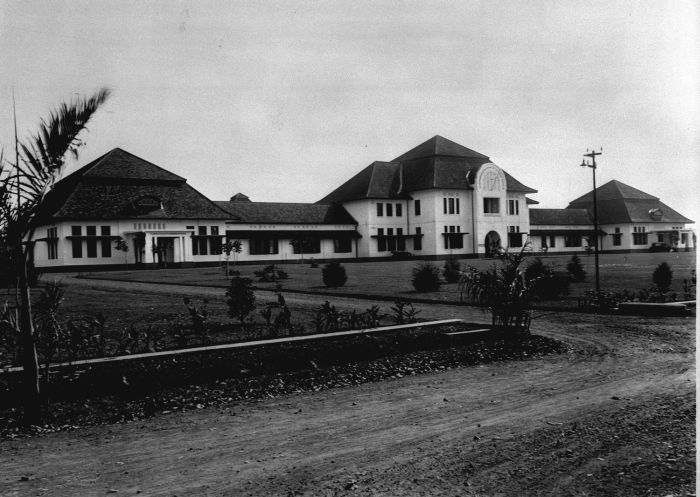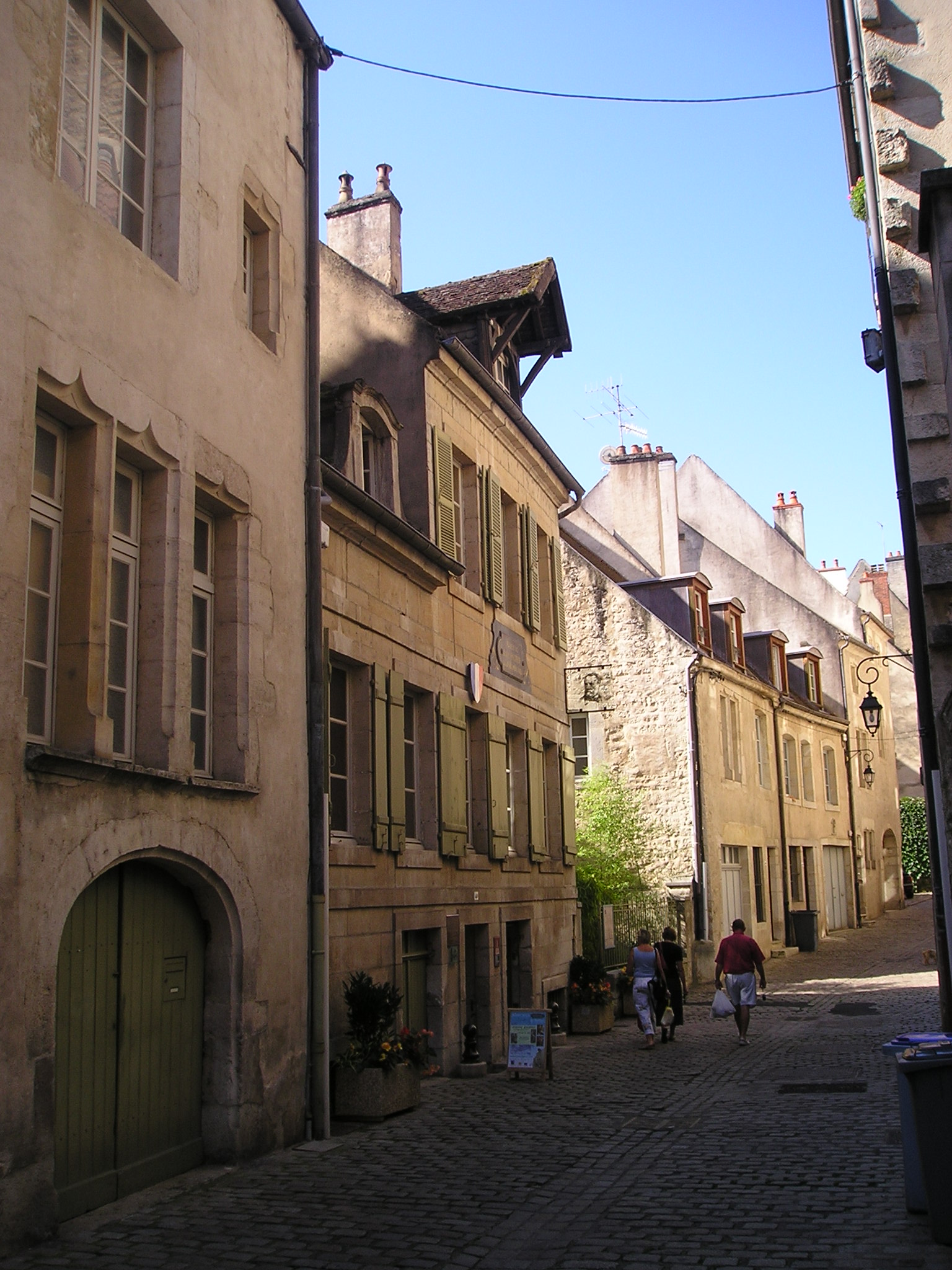|
Pasteur Institute
The Pasteur Institute (, ) is a French non-profit private foundation dedicated to the study of biology, micro-organisms, diseases, and vaccines. It is named after Louis Pasteur, who invented pasteurization and vaccines for anthrax and rabies. The institute was founded on 4 June 1887 and inaugurated on 14 November 1888. For over a century, the Institut Pasteur has researched infectious diseases. This worldwide biomedical research organization based in Paris was the first to isolate HIV, the virus that causes AIDS, in 1983. It has also been responsible for discoveries that have enabled medical science to control diseases such as diphtheria, tetanus, tuberculosis, poliomyelitis, influenza, yellow fever, and Plague (disease), plague. Since 1908, ten Institut Pasteur scientists have been awarded the Nobel Prize for medicine and physiology—the 2008 Nobel Prize in Physiology or Medicine was shared between two Pasteur scientists. History The Institut Pasteur was founded in 1887 by ... [...More Info...] [...Related Items...] OR: [Wikipedia] [Google] [Baidu] |
Louis Pasteur
Louis Pasteur (, ; 27 December 1822 – 28 September 1895) was a French chemist, pharmacist, and microbiologist renowned for his discoveries of the principles of vaccination, Fermentation, microbial fermentation, and pasteurization, the last of which was named after him. His research in chemistry led to remarkable breakthroughs in the understanding of the causes and preventions of diseases, which laid down the foundations of hygiene, public health and much of modern medicine. Pasteur's works are credited with saving millions of lives through the developments of vaccines for rabies vaccine, rabies and anthrax vaccine, anthrax. He is regarded as one of the founders of modern bacteriology and has been honored as the "father of bacteriology" and the "father of microbiology" (together with Robert Koch; the latter epithet also attributed to Antonie van Leeuwenhoek). Pasteur was responsible for disproving the doctrine of spontaneous generation. Under the auspices of the French Aca ... [...More Info...] [...Related Items...] OR: [Wikipedia] [Google] [Baidu] |
Diphtheria
Diphtheria is an infection caused by the bacteria, bacterium ''Corynebacterium diphtheriae''. Most infections are asymptomatic or have a mild Course (medicine), clinical course, but in some outbreaks, the mortality rate approaches 10%. Signs and symptoms may vary from mild to severe, and usually start two to five days after exposure. Symptoms often develop gradually, beginning with a sore throat and fever. In severe cases, a grey or white patch develops in the throat, which can block the airway, and create a barking cough similar to what is observed in croup. The neck may also swell, in part due to the enlargement of the facial lymph nodes. Diphtheria can also involve the skin, eyes, or genitals, and can cause complications, including myocarditis (which in itself can result in an cardiac arrhythmia, abnormal heart rate), peripheral neuropathy, inflammation of nerves (which can result in paralysis), proteinuria, kidney problems, and bleeding problems due to thrombocytopenia, low ... [...More Info...] [...Related Items...] OR: [Wikipedia] [Google] [Baidu] |
Émile Duclaux
Émile Duclaux (24 June 1840 – May 2, 1904) was a French microbiologist and chemist born in Aurillac, Cantal. He studied at the College of Aurillac, the Lycée Saint-Louis in Paris and at École Normale Supérieure. In 1862 he began work as an assistant in the laboratory of Louis Pasteur (1822–1895). During his career, he taught classes in Tours (1865), Clermont-Ferrand (1866), Lyon (from 1873) and Paris (from 1878). In Paris, he was a professor of meteorology at the Institute of Agronomy. For much of his career he was associated with the work of Louis Pasteur. In 1888 he was elected to the ''Académie des sciences'', and in 1894 became a member of the '' Académie Nationale de Médecine''. Duclaux's work was largely in the fields of chemistry, bacteriology, hygiene and agriculture. Duclaux initiated the custom of naming enzymes by adding the suffix "-ase" to the enzyme's substrate. His intention was to honor the first scientists (namely Anselme Payen, 1795–1871; and ... [...More Info...] [...Related Items...] OR: [Wikipedia] [Google] [Baidu] |
École Normale Supérieure
École or Ecole may refer to: * an elementary school in the French educational stages normally followed by Secondary education in France, secondary education establishments (collège and lycée) * École (river), a tributary of the Seine flowing in région Île-de-France * École, Savoie, a French commune * École-Valentin, a French commune in the Doubs département * Grandes écoles, higher education establishments in France * The École, a French-American bilingual school in New York City * Ecole Software, a Japanese video-games developer/publisher {{disambiguation, geo ... [...More Info...] [...Related Items...] OR: [Wikipedia] [Google] [Baidu] |
Institut Pasteur De Tunis Vers 1900
An institute is an organizational body created for a certain purpose. They are often research organisations (research institutes) created to do research on specific topics, or can also be a professional body. In some countries, institutes can be part of a university or other institutions of higher education, either as a group of departments or an autonomous educational institution without a traditional university status such as a "university institute", or institute of technology. In some countries, such as South Korea and India, private schools are sometimes referred to as institutes; also, in Spain, secondary schools are referred to as institutes. Historically, in some countries, institutes were educational units imparting vocational training and often incorporating libraries, also known as mechanics' institutes. The word "institute" comes from the Latin word ''institutum'' ("facility" or "habit"), in turn derived from ''instituere'' ("build", "create", "raise" or "educat ... [...More Info...] [...Related Items...] OR: [Wikipedia] [Google] [Baidu] |
Nobel Prize In Physiology Or Medicine
The Nobel Prize in Physiology or Medicine () is awarded yearly by the Nobel Assembly at the Karolinska Institute for outstanding discoveries in physiology or medicine. The Nobel Prize is not a single prize, but five separate prizes that, according to Alfred Nobel's 1895 will, are awarded "to those who, during the preceding year, have conferred the greatest benefit to humankind". Nobel Prizes are awarded in the fields of Physics, Medicine or Physiology, Chemistry, Literature, and Peace. The Nobel Prize is presented annually on the anniversary of Alfred Nobel's death, 10 December. As of 2024, 115 Nobel Prizes in Physiology or Medicine have been awarded to 229 laureates, 216 men and 13 women. The first one was awarded in 1901 to the German physiologist, Emil von Behring, for his work on serum therapy and the development of a vaccine against diphtheria. The first woman to receive the Nobel Prize in Physiology or Medicine, Gerty Cori, received it in 1947 for her role in elucida ... [...More Info...] [...Related Items...] OR: [Wikipedia] [Google] [Baidu] |
Physiology
Physiology (; ) is the science, scientific study of function (biology), functions and mechanism (biology), mechanisms in a life, living system. As a branches of science, subdiscipline of biology, physiology focuses on how organisms, organ systems, individual organ (biology), organs, cell (biology), cells, and biomolecules carry out chemistry, chemical and physics, physical functions in a living system. According to the classes of organisms, the field can be divided into clinical physiology, medical physiology, Zoology#Physiology, animal physiology, plant physiology, cell physiology, and comparative physiology. Central to physiological functioning are biophysics, biophysical and biochemical processes, homeostasis, homeostatic control mechanisms, and cell signaling, communication between cells. ''Physiological state'' is the condition of normal function. In contrast, ''pathology, pathological state'' refers to abnormality (behavior), abnormal conditions, including human diseases. ... [...More Info...] [...Related Items...] OR: [Wikipedia] [Google] [Baidu] |
Nobel Prize
The Nobel Prizes ( ; ; ) are awards administered by the Nobel Foundation and granted in accordance with the principle of "for the greatest benefit to humankind". The prizes were first awarded in 1901, marking the fifth anniversary of Alfred Nobel, Alfred Nobel's death. The original Nobel Prizes covered five fields: Nobel Prize in Physics, physics, Nobel Prize in Chemistry, chemistry, Nobel Prize in Physiology or Medicine, physiology or medicine, Nobel Prize in Literature, literature, and Nobel Peace Prize, peace, specified in Nobel's will. A sixth prize, the Nobel Memorial Prize in Economic Sciences, Prize in Economic Sciences, was established in 1968 by Sveriges Riksbank (Sweden's central bank) in memory of Alfred Nobel. The Nobel Prizes are widely regarded as the most prestigious awards available in their respective fields.Nobel Prize#Shalev69, Shalev, p. 8. Except in extraordinary circumstances, such as war, all six prizes are given annually. Each recipient, known as a laur ... [...More Info...] [...Related Items...] OR: [Wikipedia] [Google] [Baidu] |
Plague (disease)
Plague is an infectious disease caused by the bacterium '' Yersinia pestis''. Symptoms include fever, weakness and headache. Usually this begins one to seven days after exposure. There are three forms of plague, each affecting a different part of the body and causing associated symptoms. Pneumonic plague infects the lungs, causing shortness of breath, coughing and chest pain; bubonic plague affects the lymph nodes, making them swell; and septicemic plague infects the blood and can cause tissues to turn black and die. The bubonic and septicemic forms are generally spread by flea bites or handling an infected animal, whereas pneumonic plague is generally spread between people through the air via infectious droplets. Diagnosis is typically by finding the bacterium in fluid from a lymph node, blood or sputum. Those at high risk may be vaccinated. Those exposed to a case of pneumonic plague may be treated with preventive medication. If infected, treatment is with antibiotics a ... [...More Info...] [...Related Items...] OR: [Wikipedia] [Google] [Baidu] |
Influenza
Influenza, commonly known as the flu, is an infectious disease caused by influenza viruses. Symptoms range from mild to severe and often include fever, runny nose, sore throat, muscle pain, headache, coughing, and fatigue. These symptoms begin one to four (typically two) days after exposure to the virus and last for about two to eight days. Diarrhea and vomiting can occur, particularly in children. Influenza may progress to pneumonia from the virus or a subsequent bacterial infection. Other complications include acute respiratory distress syndrome, meningitis, encephalitis, and worsening of pre-existing health problems such as asthma and cardiovascular disease. There are four types of influenza virus: types A, B, C, and D. Aquatic birds are the primary source of influenza A virus (IAV), which is also widespread in various mammals, including humans and pigs. Influenza B virus (IBV) and influenza C virus (ICV) primarily infect humans, and influenza D virus (IDV) i ... [...More Info...] [...Related Items...] OR: [Wikipedia] [Google] [Baidu] |





